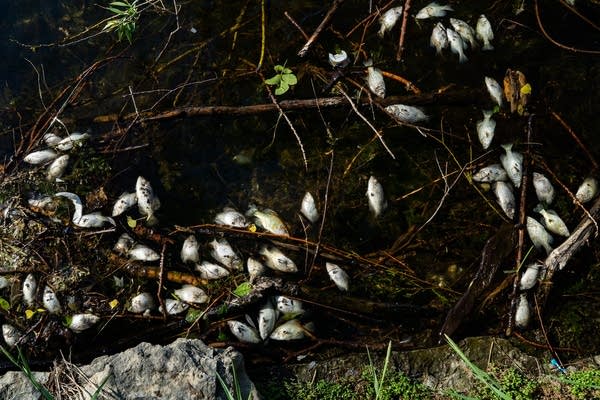Winter fish kills reported on southern MN lakes

Dead fish accumulate on the west end of Lake Nokomis in Minneapolis in June 2018.
Evan Frost | MPR News 2018
Go Deeper.
Create an account or log in to save stories.
Like this?
Thanks for liking this story! We have added it to a list of your favorite stories.


